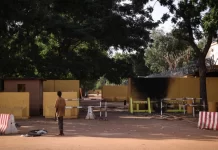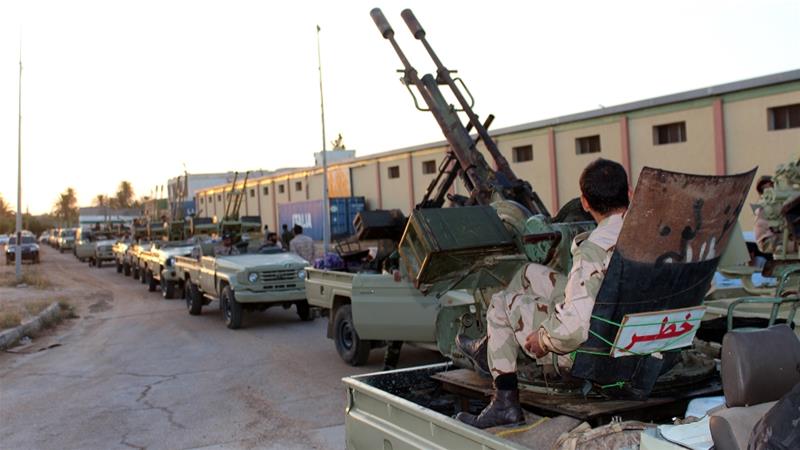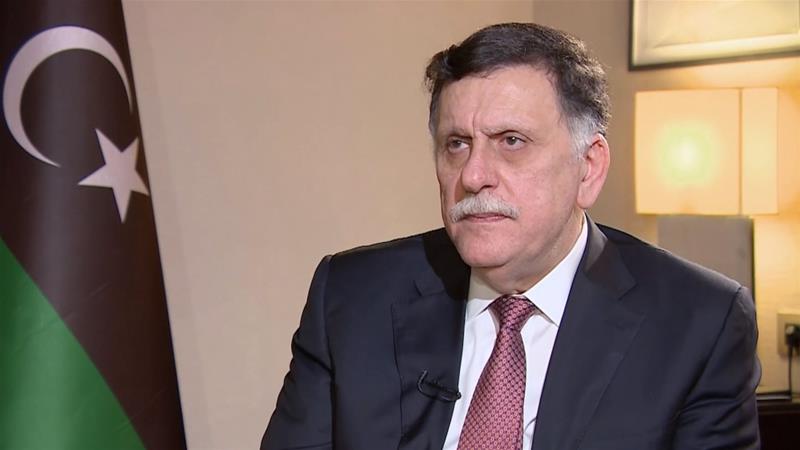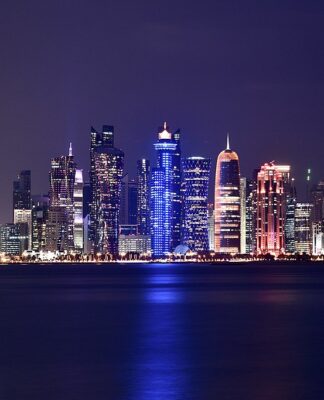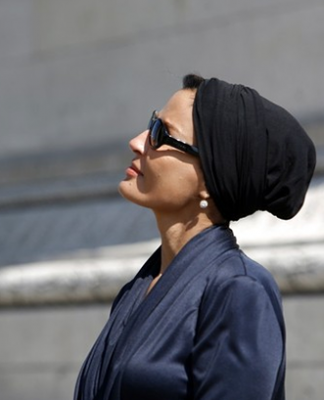Heavy fighting has broken out, killing at least three people and wounding two dozen others as troops from Libya‘s two rival governments battle, further eroding a crumbling ceasefire brokered earlier this month.
Clashes erupted on Sunday as renegade military commander Khalifa Haftar‘s forces advanced 120 kilometres (75 miles) east of Misrata city and seized the town of Abugrein, which was under the control of the United Nations-recognised Government of National Accord (GNA).
More:
On Sunday, the rebel general’s forces also shelled Tripoli, Mohamed Gnounou, a GNA military spokesman, said.
“With the enemy’s repeated violations of the ceasefire, the foe is rendering the ceasefire useless,” Gnounou said in an Arabic statement posted online. He did not give casualty figures.
A source in Haftar’s Libyan National Army (LNA), speaking to the German news agency DPA on condition of anonymity, said “we captured a number of [GNA] militiamen” during the fighting.
Haftar, who controls the east and large swaths of the south, began an offensive in April last year to seize the capital Tripoli from the GNA.
Jalel Harchaoui, a Libya expert at The Netherlands Institute of International Relations, said Haftar’s swing towards Misrata was a tactic calculated to draw away the Misratan militias defending the capital to their hometown.
He said it had a “good chance of succeeding” and weakening the GNA’s defences in Tripoli as a result.
The UN-recognised government is backed by Turkey and to a lesser degree Qatar and Italy, while Haftar has the support of the United Arab Emirates (UAE), Egpyt, Russia, and France.
Russia and Turkey brokered a nationwide truce on January 12 marking the first break in fighting in months, but there have been repeated breaches.
“This is the most serious violation of the ceasefire that we have seen since it was introduced,” said Al Jazeera’s Tony Birtley, reporting from the streets of Misrata.
Following Haftar’s surprise offensive about 35km (22 miles) into GNA-held territory, its forces took back control of Abugrein and advanced into LNA areas and seized the town of Zamzam, he said.
“It shows that the GNA can respond when needed and have actually given Haftar’s forces a bloody nose,” said Birtley.
The GNA lost three soldiers and 28 others were wounded, he said, adding that there were still no reports on the number of casualties on Haftar’s side.
Misrata, in western Libya, is the country’s second-largest city and home to fierce militias who oppose Haftar and have been key for the government’s defence of Tripoli.
Haftar’s forces captured the coastal city of Sirte earlier this month, a large blow to the Tripoli-based administration. Sirte is located about 450km (280 miles) east of the capital.
The clashes came just hours after the UN mission to Libya decried “continued blatant violations” of an arms embargo by several unspecified countries present at last week’s peace talks in Berlin.
Strict enforcement of the arms embargo was one of the main points agreed on at a summit held in the German capital.
|
|
“Over the last 10 days, numerous cargo and other flights have been observed landing at Libyan airports in the western and eastern parts of the country providing the parties with advanced weapons, armoured vehicles, advisers and fighters,” a UN statement said.
Earlier this month, powerful tribal groups loyal to Haftar also seized several large oil export terminals along the eastern coast as well as southern oilfields.
SOURCE: aljazeera.com








